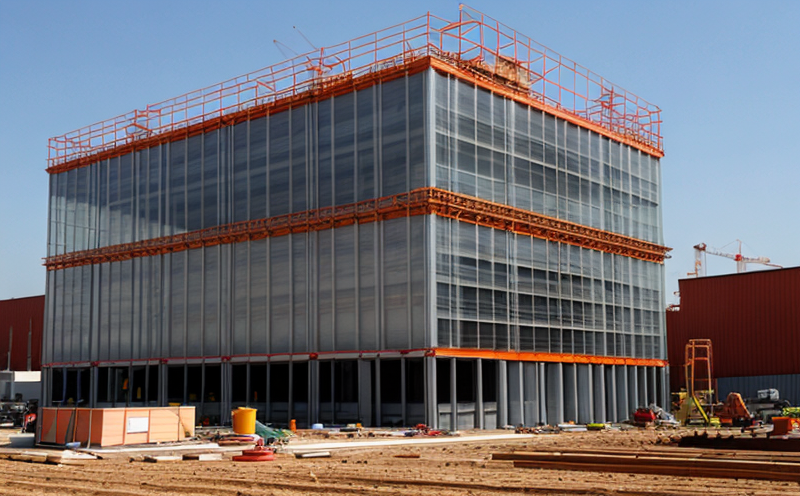Flexibility testing for coatings used in construction
The Crucial Role of Flexibility Testing in Construction Coatings Why Your Business Needs It
In the world of construction, coatings play a vital role in protecting and enhancing building surfaces. From residential to commercial projects, coatings are used to provide durability, aesthetics, and functionality to various structures. However, with the ever-increasing demand for sustainable and long-lasting building materials, coating manufacturers and suppliers must ensure that their products meet stringent performance standards.
One critical aspect of coating performance is flexibility the ability of a coating to withstand thermal expansion and contraction without cracking or losing adhesion. This characteristic is essential in construction coatings, as it directly impacts the durability and longevity of the finished product.
What is Flexibility Testing for Coatings Used in Construction?
Flexibility testing for coatings used in construction involves assessing a coatings ability to accommodate thermal expansion and contraction without compromising its integrity. This type of testing evaluates the coatings flexibility under various conditions, including temperature fluctuations, humidity changes, and surface tension variations.
Eurolab offers comprehensive flexibility testing services to help coating manufacturers and suppliers ensure that their products meet industry standards for performance and quality. Our state-of-the-art laboratory facilities and expert technicians provide precise and reliable results, giving our clients confidence in the durability and reliability of their coatings.
The Advantages of Flexibility Testing for Coatings Used in Construction
Investing in flexibility testing for construction coatings offers numerous benefits to manufacturers, suppliers, and users alike
Improved Durability Flexible coatings are better equipped to withstand thermal expansion and contraction, reducing the risk of cracking and delamination.
Enhanced Adhesion Coatings that can accommodate surface tension variations exhibit improved adhesion properties, ensuring a strong bond between the coating and the substrate.
Increased Longevity Flexible coatings tend to last longer than their rigid counterparts, minimizing maintenance costs and extending the lifespan of building surfaces.
Better Resistance to Environmental Factors Coatings with high flexibility can resist thermal shock, humidity changes, and other environmental stressors, ensuring a stable and consistent performance.
Compliance with Industry Standards Flexibility testing helps manufacturers meet industry standards for coating performance, ensuring that their products meet customer expectations and regulatory requirements.
Key Benefits of Flexibility Testing
Reduced Risk of Coating Failure By identifying potential flexibility issues, manufacturers can avoid costly rework and reduce the risk of coating failure.
Improved Customer Satisfaction Flexible coatings lead to improved durability and performance, resulting in higher customer satisfaction rates and increased brand loyalty.
Increased Revenue Manufacturers that invest in flexibility testing can command premium prices for their products, driving revenue growth and market share expansion.
Competitive Advantage Companies that prioritize flexibility testing demonstrate a commitment to quality and performance, setting them apart from competitors and establishing a leadership position in the market.
QA Flexibility Testing for Coatings Used in Construction
Q What are the common applications of flexible coatings in construction?
A Flexible coatings are used in various construction applications, including roofing, flooring, walls, and façades. They can also be applied to bridges, highways, and other infrastructure projects.
Q How is flexibility testing conducted at Eurolab?
A Our expert technicians conduct flexibility testing using standardized protocols and equipment, ensuring accurate and reliable results. We offer a range of test methods, including those specified by industry standards such as ASTM and ISO.
Q What types of coatings benefit from flexibility testing?
A All types of coatings used in construction can benefit from flexibility testing, including latex-based, acrylic, polyurethane, and epoxy coatings.
Q Can Eurolab provide customized testing services for specific coating applications?
A Yes! Our team of experts is happy to work with clients to develop customized test protocols tailored to their specific needs and requirements.
Conclusion
In todays construction industry, flexibility testing for coatings used in construction is no longer a nicety its a necessity. Eurolab is committed to providing high-quality laboratory services that help coating manufacturers and suppliers ensure the performance and durability of their products. By investing in flexibility testing, businesses can improve their coatings performance, reduce the risk of failure, and increase revenue.
Dont compromise on quality. Choose Eurolab for your flexibility testing needs. Contact us today to learn more about our comprehensive laboratory services and how we can help you succeed in the construction industry.




